04:36
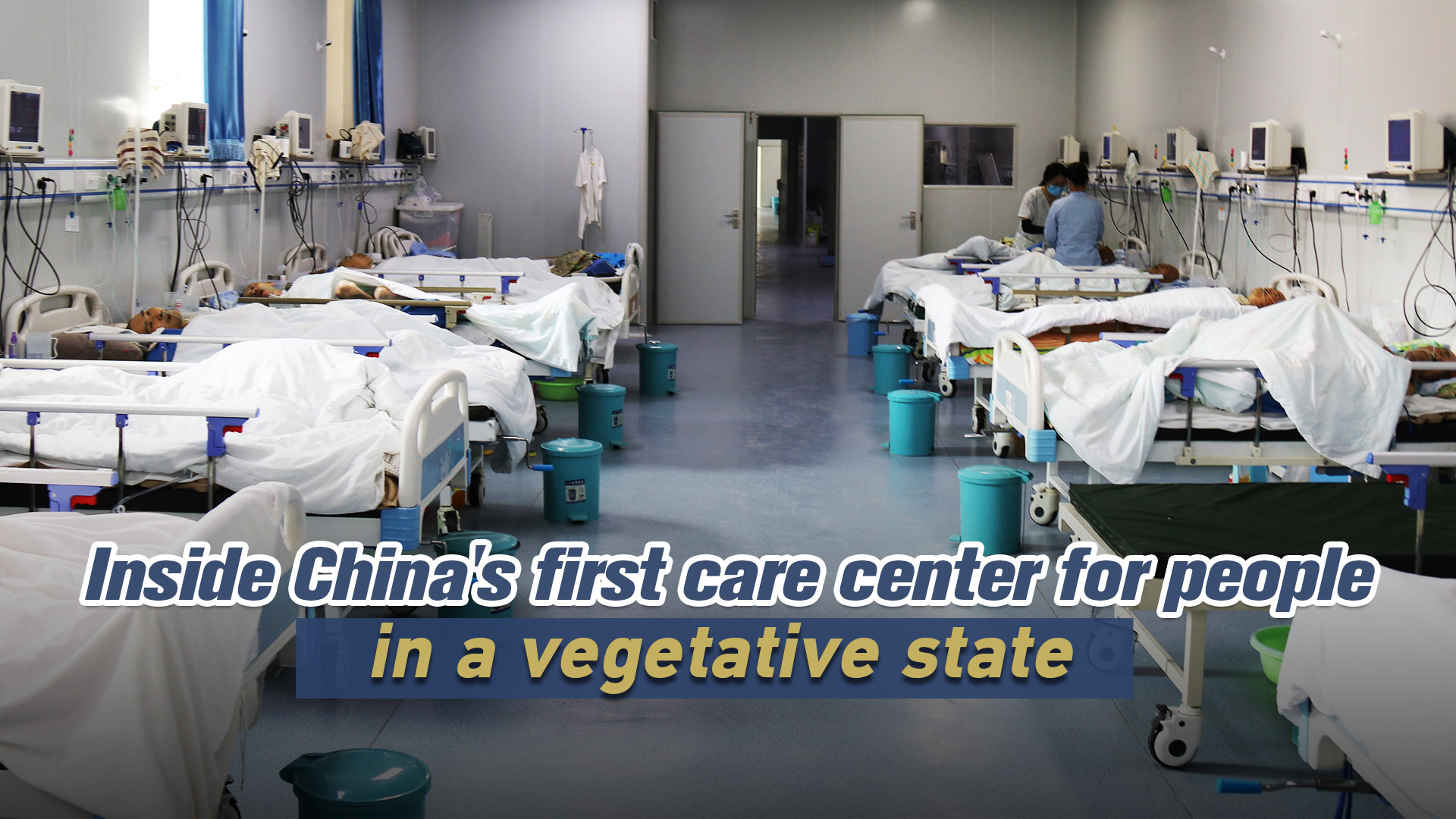
Located in a village in Miyun District, some 75 kilometers away from downtown Beijing, China's first care center for people in a persistent vegetative state (PVS) is still struggling with a shortage of funds and scarce social support five years after its founding.
Xiang Jiuda, a neurosurgeon, quit his job from a public hospital in the Chinese capital in 2015 and founded the center after seeing many families scramble to find a place to take care of their ill family members, while subsequently falling into deep debt.
He started his endeavor by selling his apartment in Miyun District to pay for rent, nurses and medical equipment bought for the facility. When the money ran out, he resorted to another home equity loan to fund the center. Over the years, he has invested more than five million yuan (around 724,000 U.S. dollars), without any income in the first four years.
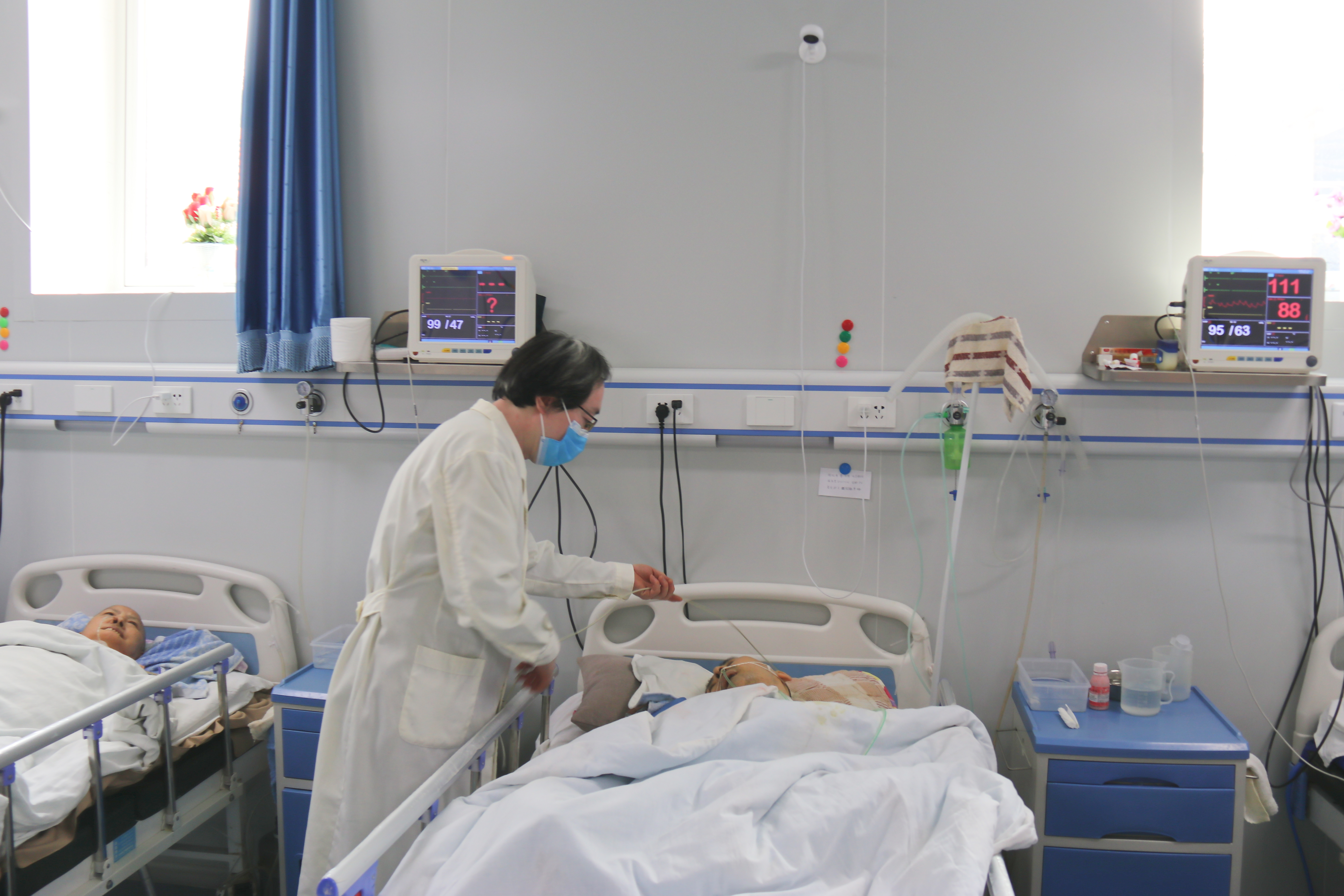
Xiang Jiuda, director of a care center for persistent vegetative people is doing sputum suction for a 14-year-old patient in Miyun District of Beijing, China. Zong Shukang/CGTN
Xiang Jiuda, director of a care center for persistent vegetative people is doing sputum suction for a 14-year-old patient in Miyun District of Beijing, China. Zong Shukang/CGTN
From humble beginnings
The beginning was fraught with many unexpected challenges. Xiang told CGTN that in the first year he had only one patient with seven nurses surrounding him, who later all left because they believed "the center had no future."
"When I started to do this, I realized that it's not an easy job. I'm a neurosurgeon, rather than a general practitioner. But I have to know all kinds of illness, so I can take emergency measures to save the person," Xiang said.
He has never forgotten his first patient. Three months after being admitted, the patient became so sick that he vomited whatever he ate. Xiang, via video chat, consulted with an experienced gastroenterologist who instructed him on the steps to finally get the patient back to normal. The patient survived for another two years.
In China, there are an estimated 300,000 to 500,000 PVS patients, with the number increasing by 70,000 to 100,000 annually. However, the market for PVS care centers is still barren, which has resulted in the absence of regulations and support from society.
For families with a PVS patient, treatment in hospitals is expensive due to limited medical resources, like beds and medics, while some believe that saving people in a vegetative state is a waste of medical resources. Additionally, nursing houses can't accept PVS patients due to industry norms and lack of capability to provide proper medical treatment. In many cases, families are forced to bring their loved ones back home, often leading to an earlier death.
The average life expectancy for a PVS patient ranges from three to four months if they receive care at home, but they can live for as long as three to five years if they receive care in professional care centers, according to He Jianghong, director of the neurosurgery department at a hospital in Beijing, who has studied PVS for over 20 years.
Xiang said one of his goals is to provide professional care for these patients, in order to extend their lifespan and relieve families of both the economic and psychological burdens.
He charges 7,500 to 10,000 yuan( 1,070 to 1,430 U.S. dollars) for each patient monthly, which is much lower compared with fees in hospitals, most of which can't be covered by the national health care system.
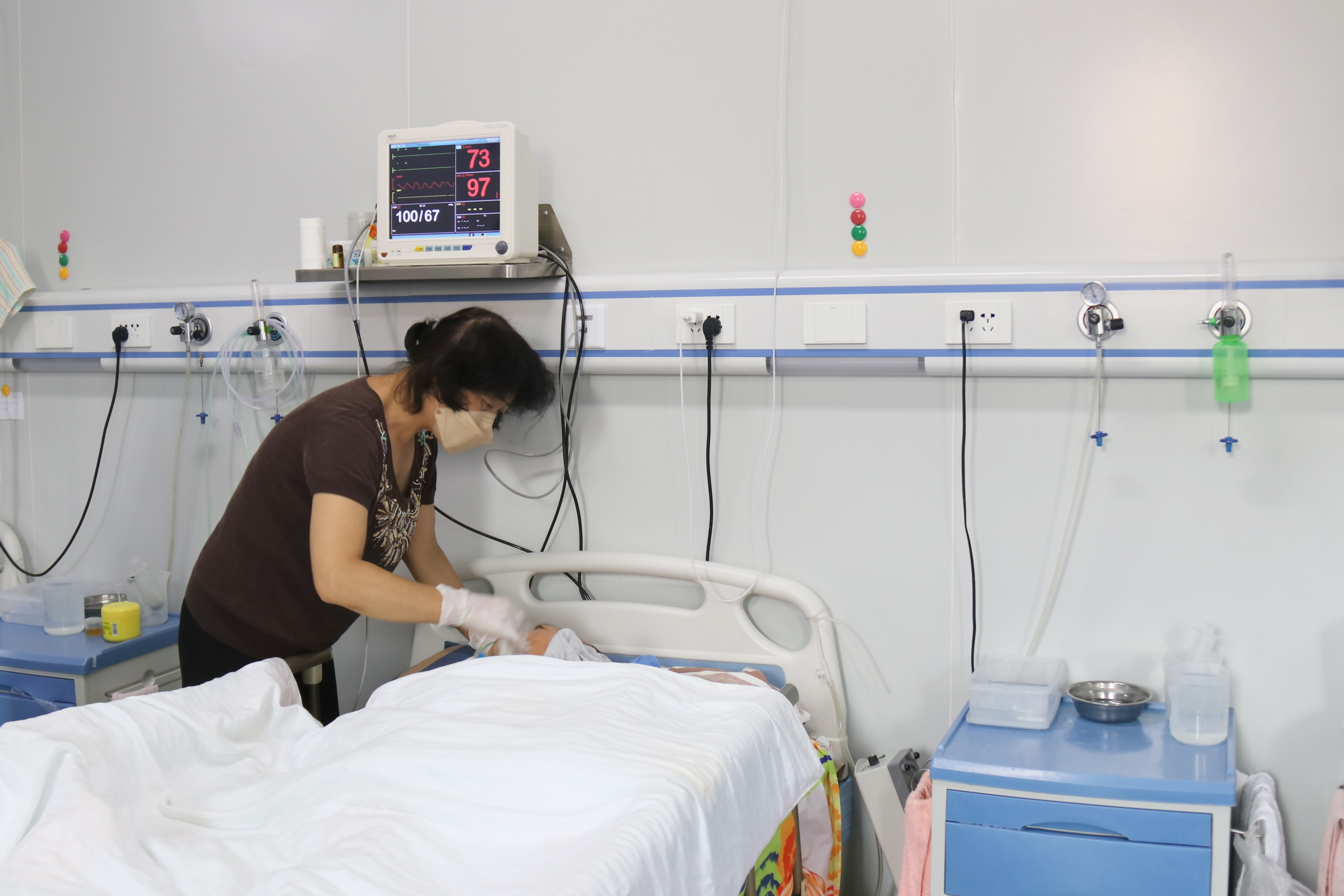
Mrs Li is wiping her husband's face. Zong Shukang/CGTN
Mrs Li is wiping her husband's face. Zong Shukang/CGTN
Mrs Li, who asked not to disclose her first name, told CGTN that she has spent over two million yuan (about 286,000 U.S. dollars) in hospitals for her husband, who is in a vegetative state. This doesn't include the money she has spent to hire care workers, to buy basics and the fees she incurred once inside the center.
Her husband was involved in an accident in 2014 and she moved him from a hospital to the center two years ago. For her, the center was a source of relief given all she had experienced in the past years, including high hospitalization expenses and unprofessional conduct from personal care workers she hired for her husband.
She recalls a humiliating experience, where one of her former care workers poked her husband's head while calling him a "dumb idiot." Unlike nurses, care workers do not necessarily have a medical background, and she felt like they were unable to provide him with the proper care he needed.
Many times, Li thought of ending her life together with her husband.
"In the worst case scenario, I really don't want to live anymore. Sometimes, when I think he has become like this. I just want to end our lives, leaving the world together with him," Li said.
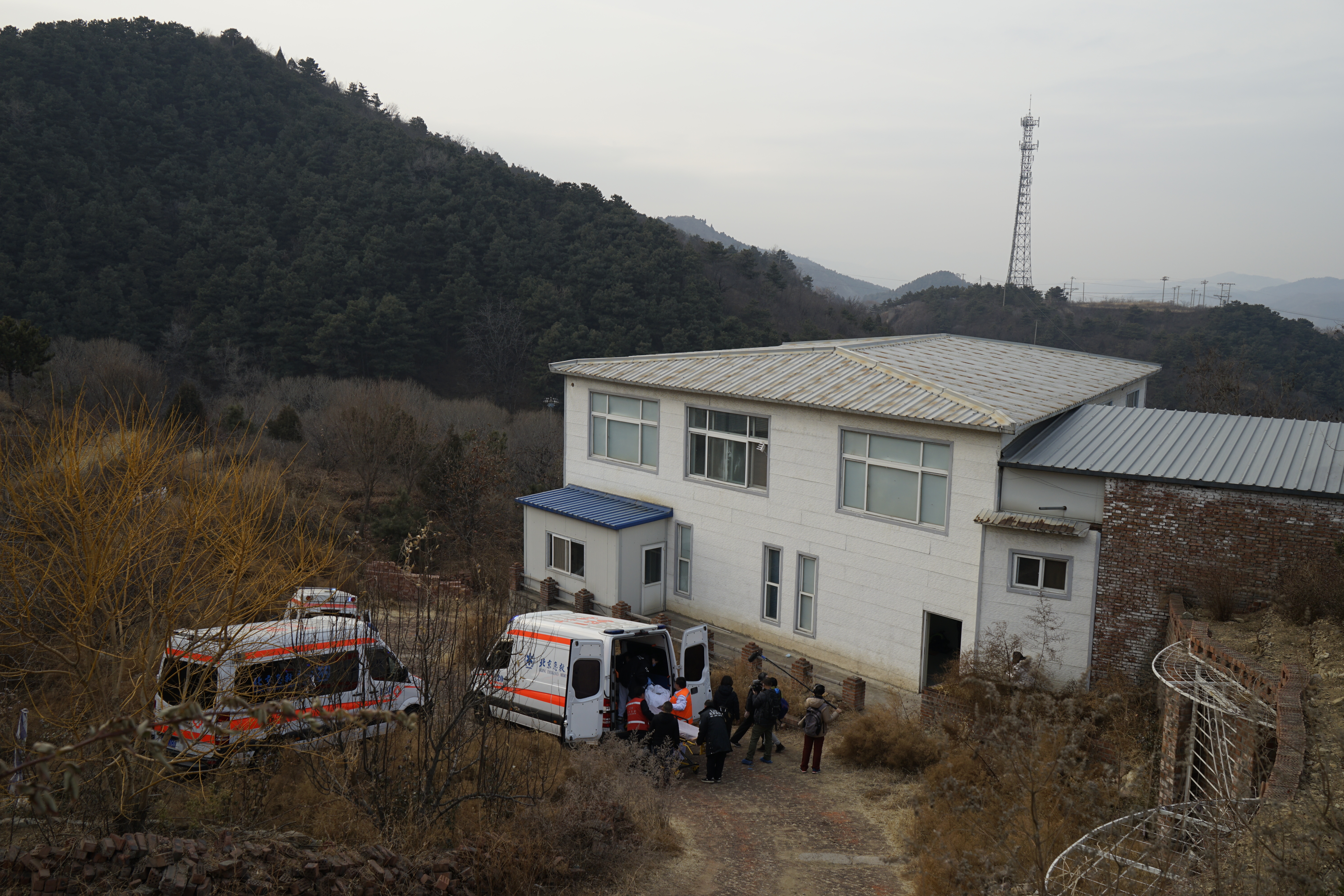
Photo of the former PVS care center of Xiang, which has no capacity to take more patients, so Xiang moved to the current new one when the lease expired. /CGTN
Photo of the former PVS care center of Xiang, which has no capacity to take more patients, so Xiang moved to the current new one when the lease expired. /CGTN
Should euthanasia be considered?
Given the hardship of taking care of a PVS patient and the torture that the patient may suffer, there are ongoing debates about whether those in persistent vegetative state should be allowed to die. The arguments for euthanasia cite the patient's suffering and allowing the person to die with dignity.
However, practicing euthanasia is not that easy in reality. In most countries, the practice is illegal except very limited countries like Switzerland, the Netherlands, Belgium and Canada.
Han Dayuan, a professor at the law school at Renmin University of China, said that euthanasia is very complicated and involves a lot of legal, ethical and social cultural factors, adding that the practice has no legal basis in the current legal system which means any form of euthanasia is illegal in China.
"The practice of euthanasia contradicts natural human instincts of survival and is against the spirit of the law," Han said, "for the person who is in a PVS, explicit consent [cannot be given], which makes it impossible to conclude that it is acceptable for the one to be euthanized."
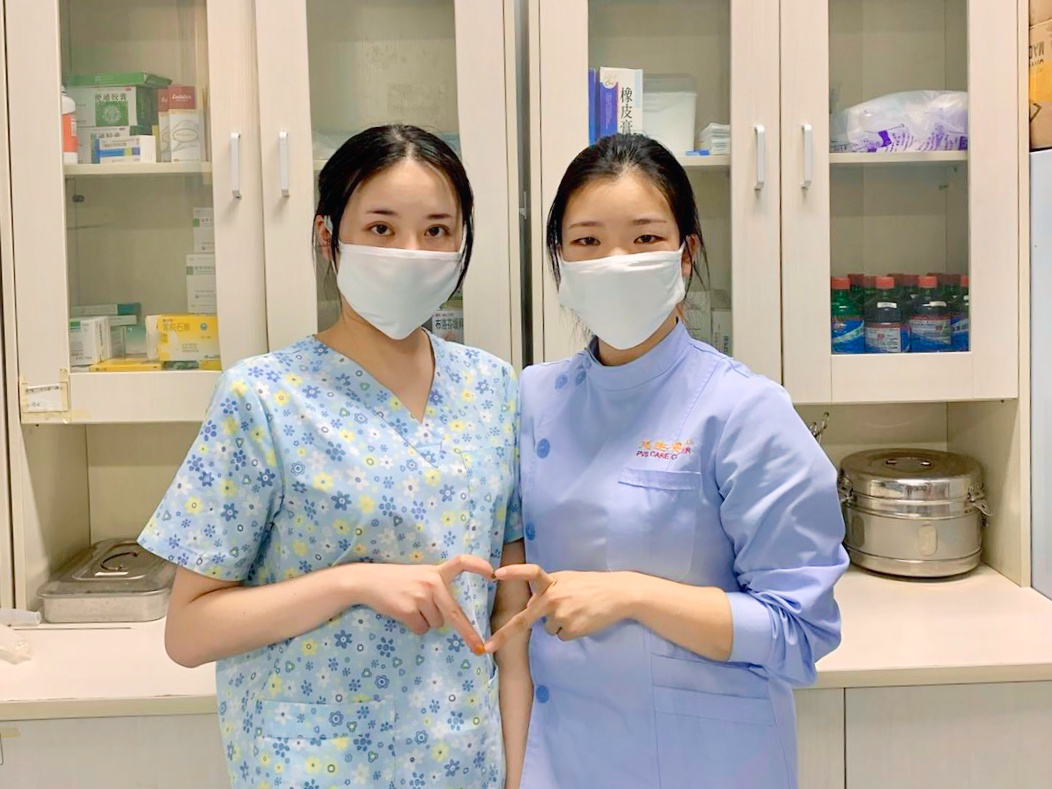
Two nurses in the PVS care center. /CGTN
Two nurses in the PVS care center. /CGTN
Additionally, the wishes of family members also play an important role in deciding the life and death of the patient. In some countries, like Canada, when a person is dependent on the ventilator and tube feedings, doctors can pull the plug after getting approval from the patient's family.
"In Canada, when doctors suggest pulling the plug to end the patient's life, 30 to 40 percent family members will agree. But in China, the percentage is pretty low," Xiang said.
He told CGTN that doctors in China usually don't give any suggestion that would directly lead to the death of the patient, given there is no law authorizing them to do that and given the tense relationship between medics and patients. And in Chinese culture, death is one of the greatest taboos and family ties are very close, so in most cases when they have the choice, they will choose to save their loved one.
For Li, despite all the money she has spent and the hardship she has suffered after her husband's accident, she insisted that as long as her husband continued breathing, she would do her best to save him, saying "human life happens only once, so people must cherish it." And this is especially true between husbands and wives when anyone falls ill.
"I don't expect too much that one day he can wake up, that he can walk. I just hope every time when I come here, I can still see him and take care of him. That's a really happy thing for me," Li said.
(Zong Shukang also contributed to the story.)